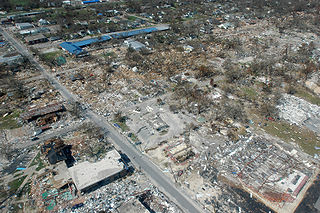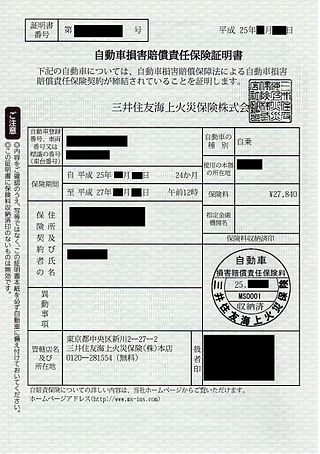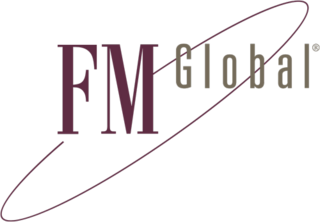
Insurance is a means of protection from financial loss in which, in exchange for a fee, a party agrees to compensate another party in the event of a certain loss, damage, or injury. It is a form of risk management, primarily used to protect against the risk of a contingent or uncertain loss.

An actuary is a professional with advanced mathematical skills who deals with the measurement and management of risk and uncertainty. The name of the corresponding field is actuarial science which covers rigorous mathematical calculations in areas of life expectancy and life insurance. These risks can affect both sides of the balance sheet and require asset management, liability management, and valuation skills. Actuaries provide assessments of financial security systems, with a focus on their complexity, their mathematics, and their mechanisms.

Life insurance is a contract between an insurance policy holder and an insurer or assurer, where the insurer promises to pay a designated beneficiary a sum of money upon the death of an insured person. Depending on the contract, other events such as terminal illness or critical illness can also trigger payment. The policyholder typically pays a premium, either regularly or as one lump sum. The benefits may include other expenses, such as funeral expenses.

Vehicle insurance is insurance for cars, trucks, motorcycles, and other road vehicles. Its primary use is to provide financial protection against physical damage or bodily injury resulting from traffic collisions and against liability that could also arise from incidents in a vehicle. Vehicle insurance may additionally offer financial protection against theft of the vehicle, and against damage to the vehicle sustained from events other than traffic collisions, such as keying, weather or natural disasters, and damage sustained by colliding with stationary objects. The specific terms of vehicle insurance vary with legal regulations in each region.

Reinsurance is insurance that an insurance company purchases from another insurance company to insulate itself from the risk of a major claims event. With reinsurance, the company passes on ("cedes") some part of its own insurance liabilities to the other insurance company. The company that purchases the reinsurance policy is referred to as the "ceding company" or "cedent". The company issuing the reinsurance policy is referred to as the "reinsurer". In the classic case, reinsurance allows insurance companies to remain solvent after major claims events, such as major disasters like hurricanes or wildfires. In addition to its basic role in risk management, reinsurance is sometimes used to reduce the ceding company's capital requirements, or for tax mitigation or other purposes.
Crop insurance is insurance purchased by agricultural producers and subsidized by a country's government to protect against either the loss of their crops due to natural disasters, such as hail, drought, and floods ("crop-yield insurance", or the loss of revenue due to declines in the prices of agricultural commodities.

The Terrorism Risk Insurance Act (TRIA) is a United States federal law signed into law by President George W. Bush on November 26, 2002. The Act created a federal "backstop" for insurance claims related to acts of terrorism. The Act "provides for a transparent system of shared public and private compensation for insured losses resulting from acts of terrorism." The Act was originally set to expire December 31, 2005, was extended for two years in December 2005, and was extended again on December 26, 2007. The Terrorism Risk Insurance Program Reauthorization Act expired on December 31, 2014.
Catastrophe modeling is the process of using computer-assisted calculations to estimate the losses that could be sustained due to a catastrophic event such as a hurricane or earthquake. Cat modeling is especially applicable to analyzing risks in the insurance industry and is at the confluence of actuarial science, engineering, meteorology, and seismology.

FM Global is an American mutual insurance company based in Johnston, Rhode Island, United States, with offices worldwide, that specializes in loss prevention services primarily to large corporations throughout the world in the Highly Protected Risk (HPR) property insurance market sector. "FM Global" is the communicative name of the company, whereas the legal name is "Factory Mutual Insurance Company". FM Global has been named the "Best Property Insurer in the World” by Euromoney Magazine.
In the insurance industry in the United States, an experience modifier or experience modification is an adjustment of an employer's premium for worker's compensation coverage based on the losses the insurer has experienced from that employer. An experience modifier of 1 would be applied for an employer that had demonstrated the actuarially expected performance. Poorer loss experience leads to a modifier greater than 1, and better experience to a modifier less than 1. The loss experience used in determining the modifier typically comprises three years but excluding the immediate past year. For instance, if a policy expired on January 1, 2018, the period reflected by the experience modifier would run from January 1, 2014 to January 1, 2017.
In insurance, an actuarial reserve is a reserve set aside for future insurance liabilities. It is generally equal to the actuarial present value of the future cash flows of a contingent event. In the insurance context an actuarial reserve is the present value of the future cash flows of an insurance policy and the total liability of the insurer is the sum of the actuarial reserves for every individual policy. Regulated insurers are required to keep offsetting assets to pay off this future liability.
The National Council on Compensation Insurance (NCCI) is a U.S. insurance rating and data collection bureau specializing in workers' compensation. Operating with a not-for-profit philosophy and owned by its member insurers, NCCI annually collects data covering more than four million workers compensation claims and two million policies. The bureau uses this information to provide:
Disability Insurance, often called DI or disability income insurance, or income protection, is a form of insurance that insures the beneficiary's earned income against the risk that a disability creates a barrier for completion of core work functions. For example, the worker may be unable to maintain composure in the case of psychological disorders or sustain an injury, illness or condition that causes physical impairment or incapacity to work. DI encompasses paid sick leave, short-term disability benefits (STD), and long-term disability benefits (LTD). The same concept is instantiated in some countries as income protection insurance.
Finite risk insurance is the term applied within the insurance industry to describe an alternative risk transfer product that is typically a multi-year insurance contract where the insurer bears limited underwriting, credit, investment and timing risk. The effect is similar to self-insurance by the insured as they will pay the whole amount of the risk, but can spread it out over several years. The assessment of risk is often conservative.
Bond insurance, also known as "financial guaranty insurance", is a type of insurance whereby an insurance company guarantees scheduled payments of interest and principal on a bond or other security in the event of a payment default by the issuer of the bond or security. It is a form of "credit enhancement" that generally results in the rating of the insured security being the higher of (i) the claims-paying rating of the insurer or (ii) the rating the bond would have without insurance.
Insurance in the United States refers to the market for risk in the United States, the world's largest insurance market by premium volume. According to Swiss Re, of the $6.782 trillion of global direct premiums written worldwide in 2022, $2.959 trillion (43.6%) were written in the United States.
The Building Industry Association of Washington or BIAW is a Washington State section 501(c)(6) non-profit organization formed in 1966 to represent the housing industry in the state of Washington. The largest trade organization in Washington State, BIAW's membership comprises about 8,000 member companies, home builders, trade contractors, suppliers and industry professionals.
Rate making, or insurance pricing, is the determination of rates charged by insurance companies. The benefit of rate making is to ensure insurance companies are setting fair and adequate premiums given the competitive nature.
The Billingsley Report is a college football rating system developed in the late 1960s to determine a national champion. Billingsley has actively rated college football teams on a current basis since 1970. Beginning in 1999, Billingsley's ratings were included as one of seven mathematical formulas included in the Bowl Championship Series (BCS) rankings.
Index-based insurance, also known as index-linked insurance, weather-index insurance or, simply, index insurance, is primarily used in agriculture. Because of the high cost of assessing losses, traditional insurance based on paying indemnities for actual losses incurred is usually not viable, particularly for smallholders in developing countries. With index-based insurance, payouts are related to an “index” that is closely correlated to agricultural production losses, such as one based on rainfall, yield or vegetation levels. Payouts are made when the index exceeds a certain threshold, often referred to as a “trigger”. By making payouts according to an index instead of individual claims, providers can circumvent the transaction costs associated with claims assessments. Index-based insurance is therefore not designed to protect farmers against every peril, but only where there is a widespread risk that significantly influences a farmer’s livelihood. Many such indices now make use of satellite imagery.






